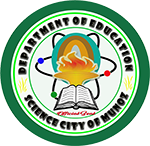Dominador M. Orpilla, Phd
Whoould remember his/her childhood days when he/she spent time with his/her mother fighting because of a yellow booklet that made him/her quest for literacy? Was he/she scared and motivated to pronounce and be able to read each letter while he/she was sitting beside his/her mother holding a hanger? Did he/she find this booklet boring after having mastered reading and started looking at the challenges in the English book?
‘Abakada’, the basic instrument of literacy that helped most Filipinos begin to search for knowledge. And basically, they learn it during their preschool days. They mastered it on their first 3 years in primary schooling as they started learning how to read the English or Filipino language.
Remember those pupils who were called ‘repeaters’ because they were retained for not knowing how to read. And it wasn’t embarrassing at all because teachers were just ensuring that those pupils who got promoted were able to read what they were expected. Today, it is a shame in the part of the teacher if the learner cannot read.
‘Abakada’ is used to be the basic. But today, as DepEd leads the way to expansion, teachers need to enhance and exercise learning English/Filipino language among pupils and students to go with the flow of global competition and improve one’s capacity in facing different nations. Filipinos need to communicate nationally and globally. So basically, pupils must be able to read during their primary stage of schooling. It is a shame to discover a Junior High school student who finds it hard reading English or Filipino. But, it is really a crime knowing that a Senior High School student is a non-reader.
A non-reader is one who cannot read, especially a child who takes a long time learning to read any language. This is prevalent among elementary pupils today especially in public schools. Therefore, one may wonder why is this possible to senior high school students? There are reports that even at this level, students find reading so difficult. Yes, there are senior high school students who really struggle reading not only difficult words but also those easy ones like the word ‘technique’. They are also reported to be unknowledgeable in filling out forms including their first name, middle name and surname. And most of them cannot stand and answer in a complete sentence or worst cannot write a simple essay. Again, this is a big challenge to DepEd. How can it improve itself to provide better education and sprout young professionally efficient and globally competitive students?
To dig in, who’s to blame? Why do teachers now let pupils pass primary schooling despite being non-readers? How can they take the consequence of letting go a child who is not well-equipped and cannot stand alone? Are they too scared and burdened to imagine the required paper works? Poor and pitiful pupils then are left unassisted by teachers who do not care for their real jobs.
Who else will care for them? Their teachers of course. So instead of blaming other people, they should work hand in hand in order to make their pupils/students become readers especially in English. And what’s important is they will be able to help those students not only to read but also to understand what they are reading. In this way, they will be able to aid the aching side of the organization.
